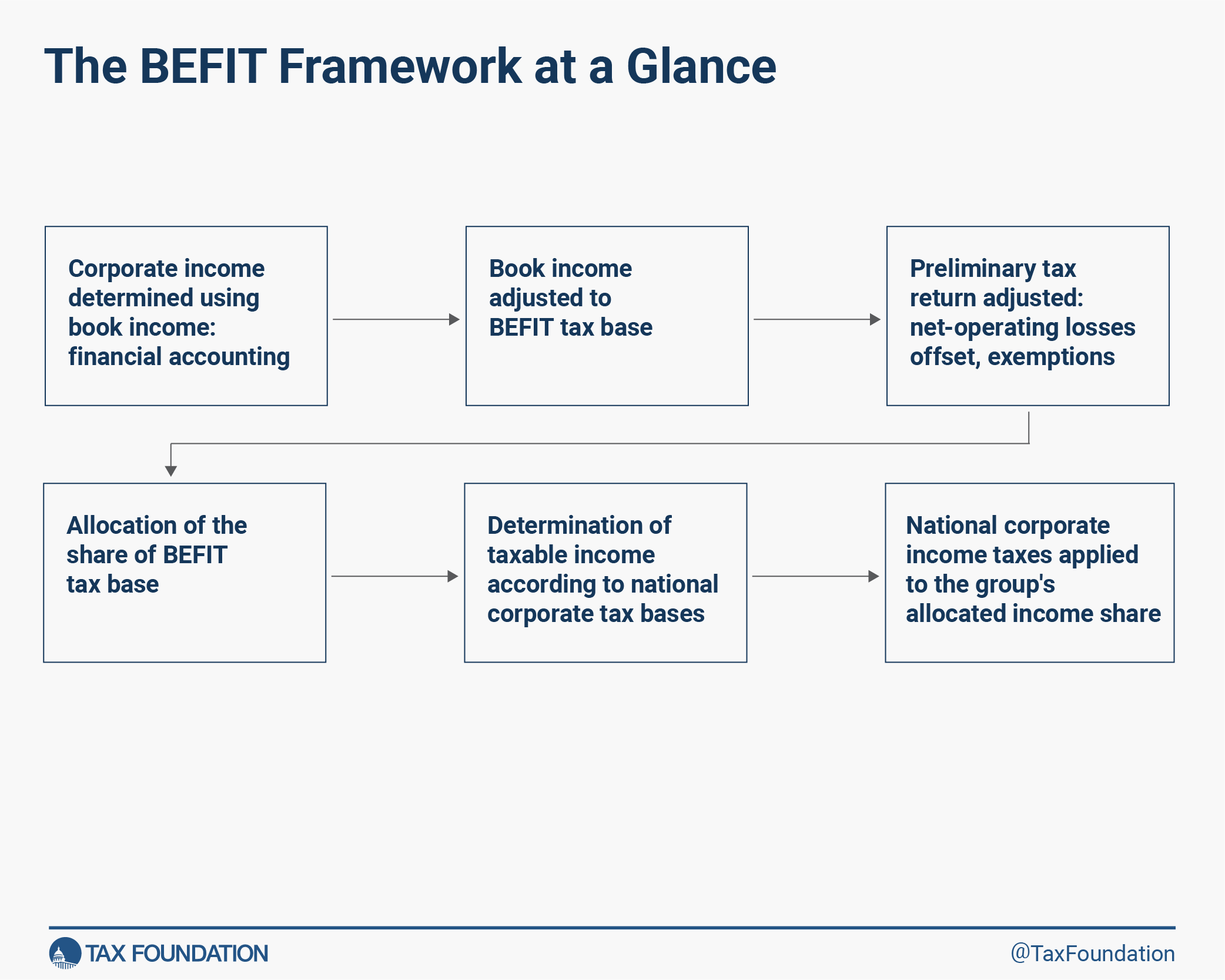2023 Spain Election Tax Policy Implications
Spanish Prime Minister, Pedro Sánchez, surprised everyone by calling a snap national election for July 23 only three weeks into the Spanish presidency of the Council of the European Union. The stakes are high in these elections, as they might provide the last window of opportunity for Spain to implement pro-growth tax reforms at the national level and as the rotating president of the Council—especially before the European Parliament elections.
The Impact of the Spanish Elections at the Regional and National Levels
The announcement to advance the general election earlier in the year comes after the left-wing coalition government’s parties performed poorly in last month’s local and regional elections. At the regional level, the People’s Party (PP) in opposition has gained enough votes to negotiate coalition governments in most regions where they haven’t secured outright majorities.
Regional tax policy conducted during past years is a good proxy for what could happen after the general elections, both at the national and European Union (EU) level if the PP secures a majority. Over the past years, the Spanish regions governed by the center-right party have committed to pro-growth tax reforms that have advanced them in the Spanish Regional Tax Competitiveness Index (RTCI).
Regional tax competition has proved effective; some Spanish regions have copied Madrid and other leading regions’ tax reforms. In 2022, Castile and Leon improved seven places overall (from 13th to 6th in the RTCI) after reforming the inheritance tax. In 2022, Andalusia was the first region to cut the top statutory inheritance tax rate from 81.6 percent to 49.6 percent, just below Germany’s and Switzerland’s top tax rate of 50 percent.
Regions are looking into repealing or cutting wealth and inheritance taxes that negatively impact entrepreneurial activity, saving, and work, instead focusing their tax policy on setting an individual income tax system that boosts wages, employment, and workers’ mobility. This trend is likely to increase in the following months as more regions are likely to be governed by the People’s Party or coalition governments they are a part of. It is this regional tax competition that stopped Spain from becoming Europe’s tax hell during the five years of Pedro Sánchez’s presidency.
At the same time, the tax policy reforms at the national level have greatly harmed Spain’s international tax competitiveness. Since 2020, Spain has dropped from 26th to 34th (out of 38 countries) in the 2022 International Tax Competitiveness Index (ITCI).
Over the last several years, Spain has adopted a financial transactions tax (FTT), a digital services tax (DST), and a special value-added tax (VAT) on sugary drinks. Additionally, at the end of 2022, new taxes were approved. Spain enacted a two-year windfall profit tax on banks and energy companies. However, the enacted measures are not proper windfall profit taxes—they go beyond merely taxing windfall profits. After the approval of the EU-wide windfall tax, the country’s government vowed to adjust the two windfall taxes, heavily criticized by the targeted sectors, to the EU design. Nevertheless, no amendments were introduced. Although the EU-wide windfall tax (called the “solidarity contribution tax”) is not a good option, it does not have as many problems as the current windfall profit taxes do.
These tax policies have harmed Spain’s international tax competitiveness and will continue to do so. If the latest tax policies introduced at the end of 2022 and the beginning of 2023 are not repealed, then they will reduce the country’s overall ranking in the 2023 ITCI even more.
That’s why Alberto Núñez Feijóo, Spain’s opposition leader, has announced tax reforms that will look to “attract investment and tell companies that Spain is the best place for them to invest.” He plans to abolish or reform the two windfall taxes and review the wealth tax that Sánchez passed last year. He also showed concern regarding Spain’s public debt and is keen on cutting the budget deficit.
Polls show that PP and Vox, Spain’s other right-wing party, have a comfortable enough margin to form a government. Nevertheless, tough negotiations between the two parties to form regional governments might jeopardize both parties during the July 23 elections. The shift of government from left supported by far-left to center-right might become the much-needed Spanish tax reform overhaul. Apart from the tax reforms announced by Feijóo, Spain should abolish the FTT, DST, and wealth taxes altogether (a 2008 partial repeal of the wealth tax by José Luis Rodríguez Zapatero was reversed three years later). To increase private investment and accelerate economic growth, Spain should consider full expensing for capital investment and shift the tax mix towards less harmful consumption taxes by broadening the VAT tax base.
Spain should implement tax reforms that have the potential to stimulate economic activity by supporting private investment and employment and attracting highly qualified workers, increasing its internal and international tax competitiveness.
The Impact of the Spanish General Election at the European Level
The Spanish elections will also impact tax policies across the continent, especially as Spain prepares to hold its fifth rotating presidency of the Council of the EU starting July 1st. This is not the first time a rotating presidency has held national elections, the most recent case being France in the first half of 2022.
As an honest broker, the Spanish Presidency is expected to continue discussing the key files addressed by the Swedish Presidency, like the “VAT in the Digital Age” package as well as the “UNSHELL” proposal to prevent the misuse of shell entities for tax purposes. But the lens might be different: in June, Spain presented some of its tax-related priorities for the upcoming months—the consolidation of the “Social Pillar” by establishing a common minimum standard for corporate taxation across all Member States to combat tax evasion by large multinationals. It also intends to continue reforming the fiscal rules combining transparency and the flexibility required by the green and digital transitions.
On the one hand, these priorities are likely to remain the same if Sánchez is reelected and successfully forms a government. Specific proposals might receive more attention; for instance, the UNSHELL proposal has broad interest and clear prioritization by the Commission to further the fight against tax evasion. Commissioner Gentiloni has repeatedly stressed the importance of moving forward on this file.
On the other hand, a change in government might give room for maneuvering in other files—like Own Resources. Traditionally, Sánchez has favored European-style “Marshall Plan” public investment programs—but has not prioritized brainstorming how to reimburse these programs.
Feijóo for his part, has not made many direct comments about the EU Own Resources either—his rhetoric likely catering to national audiences over European ones. But his pro-growth tax reforms and views on fiscal responsibility are likely to be reflected at the European level. If Feijóo is elected, the shift towards repaying the European debt might be more important, focusing increasingly on discussing the files on Own Resources. Feijóo announced that he already has the working group that would take over Spain’s responsibilities under the presidency of the EU Council—but this change is also contingent on the election results and possible coalitions.
However, the weight of a national election at the European level shouldn’t be overstated. While leadership may change, many discussions held at the Council of the EU are conducted by civil servants based in Brussels who have been preparing for this moment for years. For this reason, the files on deck are likely to remain the same notwithstanding the electoral dynamics.
What might well happen, however, is that national politics affect Spain’s ability to focus on its EU priorities—and in light of this leadership vacuum, certain files might get pushed onto its deck.
In this vein, the Council’s priorities are likely to be influenced by other needs, like the urgency of repaying the European debt. This might be confirmed following the visit by the President of the European Commission, Ursula von der Leyen, and the College of Commissioners to Madrid on July 3rd. This visit was advanced to avoid the middle of the Spanish electoral campaign but could also signal the Commission’s intention to emphasize the importance of moving forward with the first and second baskets of Own Resources in the Council. These new Own Resources are aimed at creating a stable revenue stream to finance the NextGeneration EU (NGEU)—of which Spain was one of the top recipients.
With the probability of a political vacuum in Spain’s leadership, the Commission might take the opportunity to steer the discussions on the Own Resources files. These files should move swiftly in the Council before the Union enters the European Parliament election frenzy or less cooperative Member States hold the presidency.
All in all, the Spanish elections might well come at the perfect time considering the urgency of national pro-growth tax reforms and the effort to move forward with the Own Resources and UNSHELL files—depending on who the Spanish electorate votes for.






